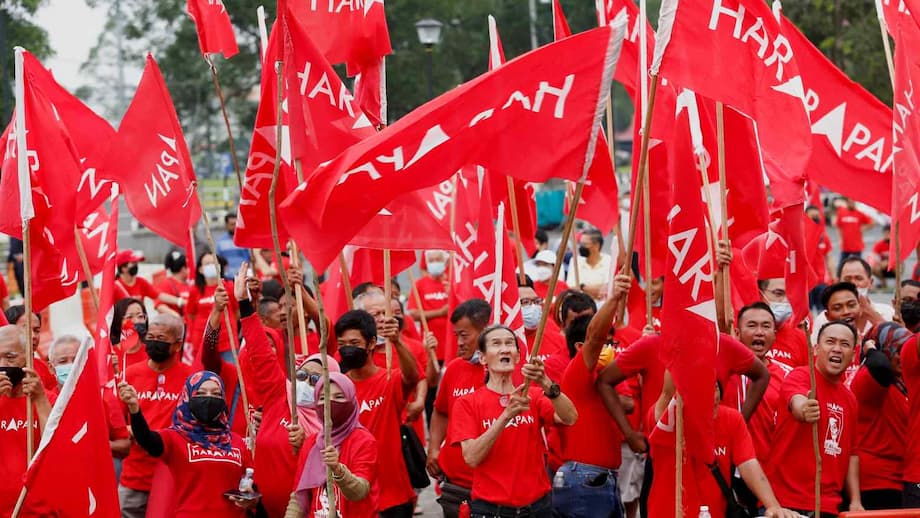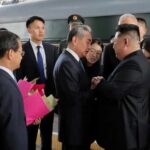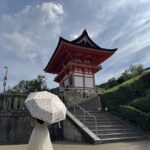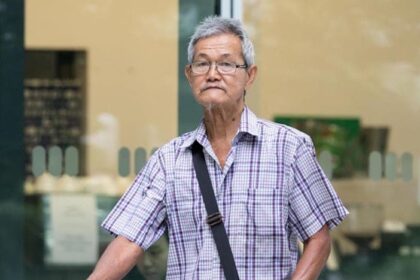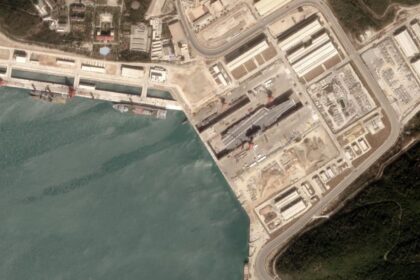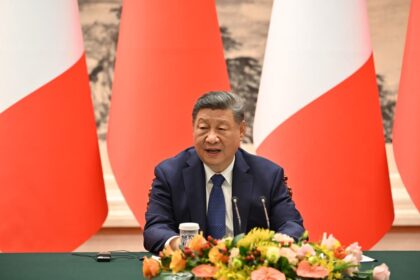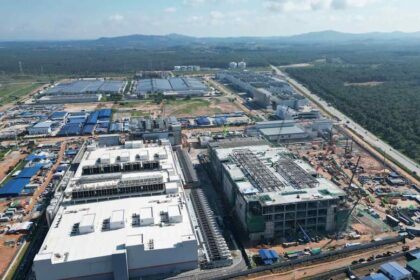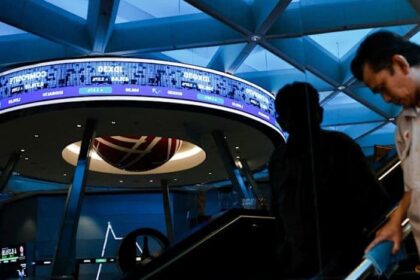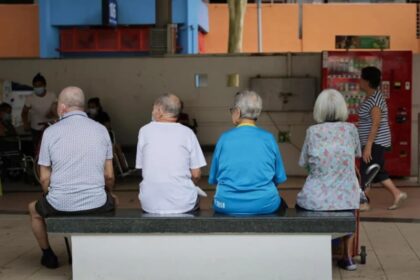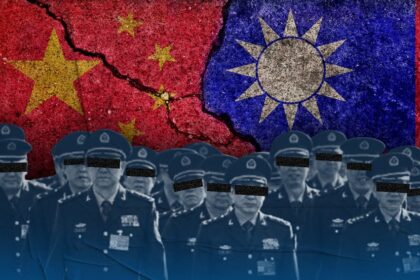A small spark in Penang, wider unease nationwide
In Penang, the national flag was hoisted upside down outside an ethnic Chinese owned hardware store. A conservative Malay politician swiftly called on the public to defend national dignity. The incident, brief and symbolic, touched a raw nerve. It played into a tense political mood shaped by sharper talk about race, religion, and belonging.
- A small spark in Penang, wider unease nationwide
- A divided mandate since 2022
- Religion in politics: rising conservatism
- Affirmative action and the race question
- Reform pressures and rights controversies
- Policy flashpoints that stoke racial debate
- Party strategies and shifting demographics
- Protest culture and the fear of escalation
- What could ease tensions
- Key Points
Malaysia’s politics run through its diversity. Malays, Chinese, Indians, and many Indigenous communities share the same country yet often hear very different messages during campaigns. That gap has widened since the 2022 general election delivered a hung parliament. Prime Minister Anwar Ibrahim eventually formed a unity government, while the opposition Perikatan Nasional, which includes the Islamist party PAS, consolidated support in Malay heartlands. Identity, more than policy detail, has powered much of the recent debate.
Small signals take on big meaning when tensions simmer. A pair of socks bearing the word Allah sparked boycotts and legal action in 2024. Proposals touching university admissions stirred anxiety about fairness and access. Each episode, including the flag row in Penang, became a proxy fight over who defines national values and who feels heard in government.
A divided mandate since 2022
Malaysia has oscillated between reform hopes and coalition fragility for years. The 2018 election broke the long rule of Barisan Nasional. An unexpected realignment in 2020, often called the Sheraton Move, returned elements of the old order. The 2022 election produced a hung parliament and the current unity government under Anwar Ibrahim. The Bertelsmann Transformation Index’s 2024 country report describes a society where political competition is open but polarization has deepened, with minorities wary of growing religious influence and Malay-centric policies still central to state strategy.
The opposition bloc, Perikatan Nasional, gained ground by appealing to Malay identity and conservative values. According to reporting by DW, PN and PAS scored major wins in the 2023 state elections, taking 146 of 245 seats and cementing control in northern and east coast states. Younger voters, energized by automatic voter registration and a lower voting age, have become a decisive force. Many are drawn to religious schools and campus networks that frame political choice through faith and morality.
Why the green wave matters
PAS-led administrations in Kelantan, Terengganu, Kedah, and Perlis have advanced rules in line with conservative Islamic norms. Policies debated in these states include stricter dress codes, greater gender separation in public programs, and efforts to implement hudud, an Islamic criminal law framework. Federal courts and the division of powers limit what can be enforced nationwide. Even so, these initiatives shape expectations for what Malaysian public life should look like.
DW’s coverage describes the trend in shorthand as a green wave, a reference to PAS’ party color. It captures not just election results, but a mood among many Malay Muslims that a more religious society will be cleaner, safer, and more just.
DW’s report states: “This surge in support for conservative Islamic policies is often called the ‘green wave.'”
Automatic voter registration and the lower voting age expanded the electorate by millions. The new voter base is younger and more Malay, especially outside major cities. Opposition leaders frame their pitch as a defense of religion and Malay rights, while the government must reassure its Malay partners without alienating minorities that supported reform in 2018 and 2022.
Religion in politics: rising conservatism
A 2023 Pew Research Center survey found that 86 percent of Muslim Malaysians favored making Sharia the official law, and 65 percent said the Quran should greatly influence state law. Those sentiments do not fully translate into what Malaysia’s federal constitution allows, yet they shape debates in classrooms, offices, and party platforms. Many young Malays view a more Islamic public life as a path to cleaner governance after years of corruption scandals.
The Anwar government has tried to signal respect for Islamic institutions while keeping a broad tent. Critics see reinforced religious agencies and community programs as proof that the government is reacting to pressure from the right. Supporters say those steps preserve social cohesion and undercut the charge that the unity government is indifferent to Malay Muslim concerns.
East Asia Forum, in its review of 2024, summed up the climate plainly: “Race and religion remained sensitive issues.”
Analysts quoted by DW warn that foreign radicals sometimes target Malaysia’s religious networks. Others counter that talk of Islamization often spikes during elections and crises, and is used by politicians to rally core voters. Both readings capture part of the picture. Religious identity is central to how many Malaysians see their place in the nation. Political leaders of every stripe respond to that reality, with very different policies.
Affirmative action and the race question
Malaysia’s affirmative action model grew out of the trauma of the 1969 racial riots. The New Economic Policy that followed sought to reduce poverty and restructure the economy so that ethnic Malays, the largest group, would gain a bigger share of wealth and opportunity. The aim was social balance and stability. Over time, the approach extended into education quotas, public procurement preferences, and ownership targets that benefited Bumiputera communities, which include Malays and many Indigenous groups.
These policies helped build a large Malay middle class and opened doors for entrepreneurs. They also hardened perceptions among many non Malays that the system sidelines minorities. That tension is an engine of modern politics. Parties compete by promising either to protect the Malay safety net or to shift toward needs based policies that cover the poor of all communities.
An essay in The Diplomat on the legacy of Mahathir Mohamad, a central figure in modern Malaysia, captured both achievement and strain in a single line.
The Diplomat observed: “Mahathir built Malaysia’s modern foundation and created its political fault lines.”
The BTI 2024 report finds that the Bumiputera empowerment agenda remains a fixture and that polarization around race and religion weakens trust in state institutions. It recommends more inclusive debate about reform, strong anti corruption enforcement, and greater decentralization to improve service delivery and public confidence.
How policy shapes daily life
Affirmative action is not just an abstract argument. Property discounts for Bumiputera buyers, preferential access to public university places, and the dominance of Malay professionals in the civil service are familiar facts of life. Many Malays view these measures as a safeguard against inequality and historic disadvantage. Many non Malays view them as barriers that push talent abroad or into private institutions.
Any signal of reform can trigger anxiety about status, identity, and economic security. Opposition campaigns often warn that changing quotas or contracts will weaken the Malay community. Reform advocates answer that targeted aid should follow need, not ethnicity, so that low income families in every community see the state as even handed. The government has tried to balance both messages.
Reform pressures and rights controversies
A fierce debate about rights and order sits alongside the identity struggle. Human Rights Watch’s World Report 2025 criticizes recent moves on free speech and security laws. The report highlights the continued use of the Sedition Act, the Communications and Multimedia Act, and new cyber rules to police online content. Cases cited include charges against activists and politicians, among them Badrul Hisham Shaharin, Wan Muhammad Azri, and former prime minister Muhyiddin Yassin. The government says such tools protect public order and the monarchy. Rights groups answer that vague laws chill speech and weaken the press.
Human Rights Watch also details harsh conditions for refugees and migrants. Malaysia lacks a domestic asylum system and is not a party to the 1951 Refugee Convention. Many asylum seekers, including large numbers of Rohingya, risk long detention, limited access to health care, and separation from relatives. The rights group reports that the UN refugee agency still lacks access to immigration detention centers. Civil society warns that this damages Malaysia’s image as a humane and confident nation.
Culture war issues add heat. The film Mentega Terbang prompted criminal charges over allegedly wounding religious feelings. Officials have pledged to block screen content that promotes LGBT themes. Many Malaysians support strict public morality rules; others see these moves as government overreach. The unity government tries to avoid alienating conservative partners while maintaining a reformist brand.
Human Rights Watch stated: “Under Prime Minister Anwar Ibrahim, the Malaysian government has backtracked on pledges to address repression and corruption.”
That judgment has sparked rebuttals from officials who argue that the coalition has to weigh stability, royal prerogatives, and coalition demands. The tension between security and liberty is real in a multiethnic state where fears of discord run deep. The choice before the government is whether to narrow restrictions in a careful way while investing in credible enforcement against hate speech and incitement.
Policy flashpoints that stoke racial debate
Specific bills and day to day decisions often become tests of identity politics. The Urban Renewal Act, planned to speed up the redevelopment of dilapidated towers, is one example. Reporting by the South China Morning Post describes opposition claims that the bill would enable land grabs, displacing poor city Malays while rewarding well connected developers. Authorities counter that legal bottlenecks have blocked urgent safety upgrades and that residents will be protected.
PAS, the main Islamist party in the opposition, has called for street protests against the plan and used stark language to frame it.
According to the SCMP report, PAS labeled the proposal as “modern colonialism that must be stopped.”
University admissions are another minefield. Public statements about revisiting criteria draw immediate reaction from students and parents. The controversy over socks printed with the word Allah in 2024 showed how faith, business, and law can mix in ways that fuel outrage. East Asia Forum noted how such episodes strained the unity government just as it tried to push economic plans and deal with floods, haze, and supply disruptions.
Party strategies and shifting demographics
The Democratic Action Party has grown from a Chinese core toward a wider base over the last decade, yet it still functions in many voters’ minds as a Chinese party. An analysis by Fulcrum points out a demographic reality that complicates DAP’s future. The Chinese share of the population fell from 24.5 percent in 2010 to 23.2 percent in 2020, and projections point to around 20 percent by 2040. DAP has fielded Malay Muslim candidates in safe seats and courted mixed constituencies, though progress is slow.
UMNO’s partnership with DAP inside the unity coalition confuses some traditional UMNO supporters. PAS has pushed the idea of an all Malay Muslim government and even floated that the prime minister’s office should be reserved for Muslims. That message resonates in states where PAS dominates. DAP now depends on allies in UMNO and other coalition parties to defend its place in government while it seeks credible Malay partners and policy wins that appeal beyond ethnicity.
The opposition’s momentum appeared to slow by late 2024, according to East Asia Forum’s review, giving Anwar some room to pursue economic reforms and active diplomacy. Identity themes still shape campaign rhetoric, but bread and butter issues, including power reliability, food prices, and public transport, have become harder to ignore.
Protest culture and the fear of escalation
Malaysia’s protest culture is cautious compared with some neighbors. Asia News Network contrasts it with Indonesia, where large mobilizations can turn confrontational. Malaysian rallies, including Bersih marches in the past and more recent Turun Anwar gatherings, usually remain peaceful and well marshaled. Many participants are middle class and wary of disorder, mindful of the 1969 riots that left a lasting scar.
The state still relies on laws that draw criticism, such as SOSMA for security offenses and the Peaceful Assembly Act for demonstrations. Police facilitate many rallies but can impose conditions, and prosecutors can still pursue cases against organizers and speakers. Anwar’s team has allowed marches that target the government, a notable change from past practice. Rights groups credit that restraint while warning about the costs of broad speech restrictions.
What could ease tensions
Malaysia’s leaders, in government and opposition, face a clear task. They need to cool identity flashpoints while proving that the state can deliver fairness, growth, and safety. The following steps are often proposed by academics, civil society groups, and policy analysts who track governance and social cohesion:
- Pivot affirmative action toward need by expanding targeted programs for low income families in every community, while retaining pathways that protect upward mobility for Bumiputera households.
- Invest in national service or youth exchange programs that bring students from different states and communities together for shared projects and practical skills.
- Strengthen independent institutions, including the courts and the anti corruption agency, so that enforcement is even handed and not seen through an ethnic lens.
- Refocus religious administration on social services and family welfare while setting clear red lines that protect minorities and freedom of belief within constitutional bounds.
- Reform speech laws with precise definitions that punish incitement and threats, not criticism, journalism, or academic debate. Build capacity in fact checking and civic education.
- Create a credible asylum and migration framework with UNHCR access to detention centers, humane alternatives for children, and clear paths to work permits where appropriate.
- Adopt local government reforms that give communities a stronger say in planning, including urban renewal, with transparent compensation and relocation guarantees.
None of these moves will end political competition over identity. They will, however, change the incentives. Politicians will have fewer rewards for stoking anger if high trust institutions and fair programs meet the needs of families across Malaysia.
Key Points
- A flag incident in Penang and several religion related controversies highlight how sensitive identity has become in daily politics.
- The 2022 hung parliament produced a unity government under Anwar Ibrahim and a strong opposition led by PN and PAS.
- DW reports that PN and PAS won 146 of 245 seats in 2023 state polls, consolidating control in northern and east coast states.
- A 2023 Pew survey found 86 percent of Muslim Malaysians favor Sharia as official law, and 65 percent want strong Quranic influence on legislation.
- Affirmative action for Bumiputera remains central to policy, shaping education, procurement, and property markets, while fueling debate about fairness.
- Human Rights Watch criticizes the use of sedition and cyber laws and documents poor conditions for refugees and migrants in detention.
- Urban renewal legislation has become a flashpoint, with PAS calling it modern colonialism, while the government says safety and renewal are the goals.
- DAP seeks broader appeal as the Chinese share of the population declines, while PAS and Bersatu vie for Malay voters.
- Malaysia’s protest culture remains cautious, reflecting middle class preferences and memories of 1969, even as legal restrictions draw scrutiny.
- Practical steps on targeted aid, fair enforcement, religious administration, speech law reform, and humane migration policy can lower the temperature.


